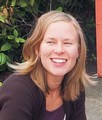Beyond the Guidebook 2015 showcases “The Story of Convening for Action in the Capital Region”

“The program began in 1983 as an engineering response to high levels of fecal coliform on local beaches,” reports Dale Green. “CRD has since undergone a transition, from ‘stormwater-based thinking’ that is narrowly focussed, to ‘watershed-based thinking’ that is holistic in approach. The broadening of scope is reflected in the re-naming of the Stormwater, Harbours and Watersheds Program (SHWP). In 2012, the program became the Integrated Watershed Management Program (IWMP).”










